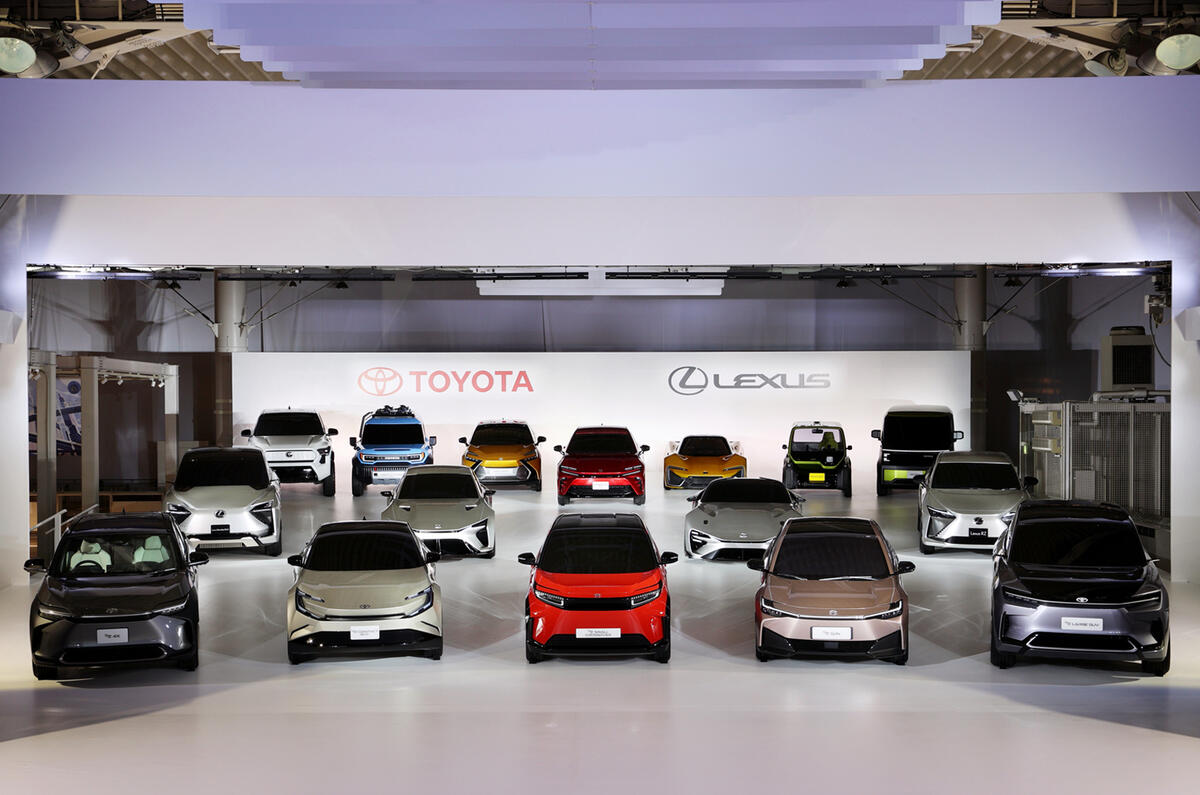Toyota is rebooting its plans to launch 30 battery-electric models by 2030 in response to the unexpectedly rapid uptake of EVs, according to a new report.
In December 2021, Toyota and its luxury brand, Lexus, showed 15 concept cars intended to spearhead its strategy to sell 3.5 million EVs per year by 2030.




Add your comment